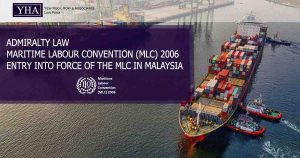
ANCHORED IN CONTROVERSY: M/T AFRA OAK AND THE COST OF NAVIGATIONAL NEGLIGENCE
The English High Court’s decision in the M/T Afra Oak [2024] 2 Lloyd’s Rep 609 case sheds light on the delicate balance between following charterer instructions and exercising good seamanship. Anchoring in prohibited waters led to the vessel’s detention and highlighted the importance of complying with local and international maritime laws, such as UNCLOS. This ruling serves as a cautionary tale for operators in Malaysia and the region, emphasizing clear communication, legal compliance, and proactive risk management in high-traffic zones like the Straits of Malacca.




